Industry News
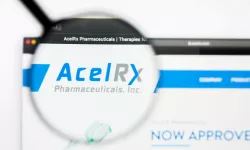
SAN MATEO, Calif.SAN MATEO, CA - (NASDAQ: ACRX), a specialty pharmaceutical company focused on the development and commercialization of innovative therapies for use in medically supervised settings, today announced the publication of a quantitative market research study evaluating current U.S. physician anticoagulation use during continuous renal replacement therapy (CRRT) in patients with acute kidney injury in the intensive care unit. The only FDA-approved anticoagulant for dialysis circuits is heparin, which has a half-life of 1-3 hours. Heparin is therefore classified as a "systemic" anticoagulant, as it circulates back into the patient from the dialysis circuit, resulting in anticoagulation of the patient, which is often dangerous. The FDA has given an Emergency Use Authorization (EUA) to citrate, which is classified as a "regional" anticoagulant, as its effect is reversed with a calcium infusion that is administered to the patient, therefore limiting its anticoagulant effect to the circuit.
The publication, entitled "Anticoagulation Practices for Continuous Renal Replacement Therapy: A Survey of Physicians from the United Statesthe United States," is lead authored by Dr. David BoldtDavid Boldt, and published in the journal Renal Failure. Dr. Boldt is an Associate Professor at the University of California, Los Angeles School of Medicine,University of California Critical Care Intensivist and Division Chief of Trauma and Adult Multi-Specialty Anesthesiology. In the study, a total of 150 U.S. board-certified physicians consisting of critical care medicine specialists (n=80) and nephrologists (n=70) who specialize in CRRT were surveyed by MedSurvey from November to December 2022 regarding their current CRRT anticoagulation practices.
This study resulted in a number of key findings:
- CRRT machine use increased by approximately 30% from pre-pandemic era to late 2022.
- On average, physicians use heparin in the CRRT circuit for 43% of patients, with citrate being used in 28% of patients and no anticoagulation used in 29% of patients.
- The top reason for use of heparin is that it is readily available, but concerns with heparin included systemic bleeding and heparin-induced thrombocytopenia, which were ranked 3.5 and 3.4 respectively, on a 1-5 scale of "not challenging" to "very challenging".
- Hypocalcemia (52% of physicians) and citrate safety (42% of physicians) were ranked as the top two reasons for not using citrate in heparin-intolerant patients. Physicians who do use citrate reported that hypocalcemia occurs in 37% of patients.
- When no anticoagulation is used in the CRRT circuit, 84% of physicians stated filter clogging was a problem and almost a quarter of the physicians stated an increase in transfusions was required as a result.
Study limitations include that the study was an online survey; however, physicians had to pass eight screening questions to ensure they were board-certified in critical care medicine or nephrology, worked in an ICU, and were familiar with the protocols and logistics of CRRT use in their hospital.
"It is clear from this study that physicians in charge of CRRT at their institutions are not completely satisfied with the currently available anticoagulants, heparin and citrate, for use in the dialysis circuit," stated Dr. Pamela Palmer, AcelRx Chief Medical Officer and co-founder. "Niyad as a potentially new regional anticoagulant for patients who cannot tolerate heparin could provide a meaningful improvement to the current standard of care in this field. Allowing physicians to avoid the complexities associated with citrate and reducing the number of patients who receive no anticoagulation by offering a new alternative can hopefully improve the quality of CRRT for these very fragile patients."
Dr. Boldt states, "We really don't have any great choices as it relates to CRRT anticoagulation, which is why I am excited about the potential approval of Niyad as a new anticoagulant option. Nafamostat's ultra short half-life of 8 minutes and its limited systemic effect could really change how we approach anticoagulation of CRRT circuits. Heparin is fraught with potentially significant, and often life-threatening, complications such as systemic bleeding and heparin-induced thrombocytopenia, as well as heparin resistance, all of which make using heparin challenging in many patients." Dr. BoldtDr. Boldt continues, "While citrate avoids the risk of systemic bleeding, its complicated administration protocol, requirement for a calcium infusion, frequent testing of calcium levels, and citrate toxicity risks can lead many clinicians to avoid its use altogether."
AcelRx provided funding to conduct the study. Some of the authors, including Dr. BoldtDr. Boldt, are consultants for AcelRx but were not paid for their contributions to this manuscript.
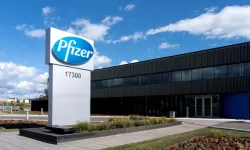
NEW YORK, NY - Pfizer Inc. (NYSE: PFE) today announces that the waiting period under the Hart-Scott-Rodino Antitrust Improvements Act of 1976, as amended, expired December 11, 2023, with respect to Pfizer’s pending acquisition of Seagen Inc. (NASDAQ: SGEN). Pfizer and Seagen have now received all required regulatory approvals to complete the acquisition. Pfizer expects to close the acquisition of Seagen on December 14, 2023, subject to the satisfaction of other customary closing conditions.
To address U.S. Federal Trade Commission concerns, Pfizer has chosen to irrevocably donate the rights of royalties from sales of Bavencio® (avelumab) in the U.S. to the American Association for Cancer Research (AACR). This unrestricted donation will support AACR in its mission to prevent and cure cancer through research, education, communication, collaboration, science policy, and funding for cancer research.
Changes in Commercial Organization
Pfizer also announces changes in its commercial organization to incorporate Seagen and improve focus, speed and quality of execution. Specifically, Pfizer will create an end-to-end business organization called the Pfizer Oncology Division, which will integrate certain oncology commercial and R&D operations from both companies and will be led by Dr. Chris Boshoff, who will become Chief Oncology Officer, Executive Vice President, and continue reporting to Dr. Albert Bourla, Chairman and Chief Executive Officer. Pfizer will split its non-oncology commercial organization into two more focused business divisions: the Pfizer U.S. Commercial Division, which will be led by Aamir Malik, who will become Chief U.S. Commercial Officer, Executive Vice President, and continue reporting to Dr. Bourla; and the Pfizer International Commercial Division, which will be led by Alexandre de Germay, who will join Pfizer as Chief International Commercial Officer, Executive Vice President, and will report to Dr. Bourla. Biographical information for Alexandre de Germay can be found here.
While these three leaders will begin transitioning to their new roles immediately after the completion of the Seagen acquisition, the new organization structure will go into effect January 1, 2024.
After a stellar nearly 27-year career at Pfizer, Angela Hwang, Chief Commercial Officer, and President, Global Biopharmaceuticals Business will be leaving Pfizer. Angela has agreed to stay on as an advisor to help transition the organization into the new model. Under Angela’s leadership, Pfizer introduced an unprecedented number of new medicines and vaccines to patients across the globe.
“The completion of all regulatory reviews in association with the Seagen acquisition supports our belief that this transaction is good for patients in the battle against cancer,” said Dr. Albert Bourla, Pfizer Chairman and Chief Executive Officer. “With the anticipated Seagen closing in the coming days, Pfizer has announced changes to the company’s commercial structure designed to maximize the impact of this transaction and enhance our commercial execution across all the company’s therapeutic areas. I also want to thank Angela Hwang and celebrate her vast achievements and the unforgettable legacy she leaves behind. Angela is a purpose-driven leader, and her focus has consistently been on working to bring more breakthroughs to patients around the world.”
Invitation to Public Webcast to Discuss Seagen Acquisition and Provide Full-Year 2024 Financial Guidance
Separately, Pfizer invites investors and the general public to view and listen to a webcast of a live conference call with investment analysts at 8:30 a.m. EST on Wednesday, December 13, 2023. During the call Pfizer will discuss the Seagen acquisition, new commercial organization, and provide full-year 2024 financial guidance.
To view and listen to the webcast, visit our web site at www.pfizer.com/investors. Information on accessing and registering for the webcast will be available at www.pfizer.com/investors beginning today. Participants are advised to register in advance of the conference call.
You can also listen to the conference call by dialing either (800) 456-4352 in the United States and Canada or (785) 424-1086 outside of the United States and Canada. The passcode is 70115.
The transcript and webcast replay of the call will be made available on our web site at www.pfizer.com/investors within 24 hours after the end of the live conference call and will be accessible for at least 90 days.

PARIS - Sanofi is disappointed with the Federal Trade Commission’s announcement that it is seeking a preliminary injunction against a proposed licensing agreement between Sanofi and Maze Therapeutics. The agreement, announced on May 1, 2023, is for MZE001, a glycogen synthase 1 (GYS1) inhibitor program that has completed Phase 1 and is in development for Pompe Disease, a rare, inherited and often fatal disorder that disables the heart and skeletal muscles.
"We respectfully disagree with the action by the FTC which also delays potential advancements that could impact the lives of patients. The Maze partnership was designed to apply Sanofi’s resources, knowledge, and expertise to accelerate the development of MZE001, with the hope of addressing unmet medical needs for this devastating condition. The delay associated with a long litigation has led Sanofi to conclude that it would not be in the best interests of patients to contest this litigation and Sanofi will therefore be terminating the agreement with Maze in accordance with its terms. Sanofi remains committed to address the Pompe patient community’s unmet needs."
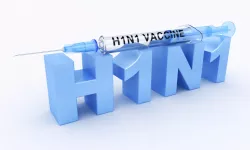
DUBLIN - The "H1N1 Vaccines Market - Global Industry Size, Share, Trends, Opportunity, and Forecast, 2018-2028F" report has been added to ResearchAndMarkets.com's offering.
This comprehensive research publication details insights into the Global H1N1 Vaccines Market, presenting a forecasted growth trajectory through 2028. With a focus on industry size, share, trends, and opportunities, the study offers crucial analysis of the market dynamics shaping the healthcare sector's response to the H1N1 influenza virus, commonly referred to as swine flu.
Key Drivers Fueling Market Expansion
The robust expansion of the H1N1 Vaccines Market can be attributed to various factors, with pandemic preparedness and an increase in public health awareness acting as primary catalysts. Heightened awareness has spurred governments and health organizations worldwide to invest significantly in vaccine development, production, and distribution networks. Moreover, continuous virus monitoring and advancements in vaccine technology play pivotal roles in bolstering market growth, as they lead to timely updates of vaccine formulations to keep pace with the ever-evolving virus strains.
Public Health Initiatives Elevate Market Prospects
Strategic public health campaigns and initiatives have been instrumental in raising awareness and combating vaccine hesitancy, ultimately creating an informed population that is motivated to engage in vaccination programs. These initiatives, particularly focused on high-risk demographics, have led to sustained demand and a subsequent surge in market growth.
Significant Segmental Developments
- Intramuscular Vaccines: Forecast to experience a surge in growth due to their efficacious nature and rapid absorption into the bloodstream, these vaccines cater especially to the aging population, which presents an elevated risk for H1N1 infection.
- Hospital Pharmacies: Expected to hold a dominant market position, hospital pharmacies are recognized for their expertise and infrastructure to store and administer vaccines to diverse patient demographics efficiently, including high-risk groups.
Regional Market Insights: North America Continues to Lead
The research publication reveals that North America maintains a substantial share in the H1N1 Vaccines Market, a trend expected to continue throughout the forecast period. This dominance is supported by proactive health measures, advanced research facilities, and a strong healthcare infrastructure capable of responding to influenza-related incidences with effective vaccination strategies.
Advancements Set to Revolutionize Vaccine Landscape
Emerging trends in the H1N1 Vaccines Market include the advent of universal influenza vaccines that provide broad protection against multiple strains and the application of mRNA vaccine technology, which offers a rapid response to new viral strains. Additionally, the development of cross-protective vaccines holds promise for mitigating the risks associated with zoonotic transfers of the H1N1 influenza virus.
Competitive Landscape and Future Market Potential
The industry analysis presents a detailed overview of the competitive landscape, underscoring the significant players and their roles in shaping the market. As the H1N1 Vaccines Market continues to grow, stakeholders in the global healthcare community will have access to data crucial for informed decision-making and strategic planning. The insights provided by this latest market research are indispensable for industry professionals, health policymakers, and medical researchers looking to understand the full scope of the H1N1 vaccines landscape and its potential impact on public health across the globe.
Report Scope:
In this report, the Global H1N1 Vaccines Market has been segmented into the following categories, in addition to the industry trends which have also been detailed below:
By Route of Administration:
- Intradermal Vaccines
- Intramuscular Vaccines
- Intranasal Vaccines
By Type of Brand:
- Agripal
- Fiuarix
- Influgen
- Influvac
- Nasovac
- Vaxigrip
By Distribution Channel:
- Hospital Pharmacies
- Retail Pharmacies
- Online Pharmacies
A selection of companies mentioned in this report includes
- AstraZeneca
- Sanofi Pasteur MSD
- GSK
- Abbott Laboratories
- CSL
- Pfizer
- CPL Biologicals
- Mitsubishi Tanabe Pharma Corp
- Sinovac Biotech
- Zydus Lifesciences
For more information about this report visit https://www.researchandmarkets.com/r/jijl38

NORTH CHICAGO, IL - AbbVie Inc. (NYSE: ABBV) and Cerevel Therapeutics (NASDAQ: CERE) today announced a definitive agreement under which AbbVie will acquire Cerevel Therapeutics and its robust neuroscience pipeline of multiple clinical-stage and preclinical candidates with potential across several diseases including schizophrenia, Parkinson's disease (PD), and mood disorders. The acquisition complements AbbVie's neuroscience portfolio, adding a wide range of potentially best-in-class assets that may transform standards of care across psychiatric and neurological disorders where significant unmet needs remain for patients.
Under the terms of the transaction, AbbVie will acquire all outstanding shares of Cerevel for $45.00 per share in cash. The transaction values Cerevel at a total equity value of approximately $8.7 billion. The boards of directors of both companies have approved the transaction. This transaction is expected to close in the middle of 2024, subject to Cerevel shareholder approval, regulatory approvals, and other customary closing conditions.
"Our existing neuroscience portfolio and our combined pipeline with Cerevel represents a significant growth opportunity well into the next decade," said Richard A. Gonzalez, chairman and chief executive officer, AbbVie. "AbbVie will leverage its deep commercial capabilities, international infrastructure, and regulatory and clinical expertise to deliver substantial shareholder value with multibillion-dollar sales potential across Cerevel's portfolio of assets."
"Cerevel has always been committed to transforming what is possible in neuroscience. With AbbVie's long-standing expertise in developing and commercializing medicines on a global scale, Cerevel's novel therapies will be well positioned to reach more people living with neuroscience diseases," said Ron Renaud, president and chief executive officer, Cerevel Therapeutics. "The talented, passionate, and dedicated Cerevel team has made great progress over the past five years in developing our innovative suite of potential medicines, and we are pleased that AbbVie has recognized the tremendous potential of our pipeline. This acquisition reinforces the renaissance we are seeing in neuroscience, and we are proud to be at the forefront."
Cerevel's late-stage asset emraclidine, a positive allosteric modulator (PAM) of the muscarinic M4 receptor, is a potential best-in-class, next-generation antipsychotic that may be effective in treating schizophrenia patients. Schizophrenia impacts more than five million people in the G7 (U.S., France, Germany, Italy, Spain, United Kingdom, and Japan) and a significant opportunity for treatment innovation remains for new and better tolerated therapies. In a Phase 1b study, emraclidine has shown promising efficacy and safety in schizophrenia and is currently completing two Phase 2 trials that were designed to be registration enabling. In addition, emraclidine has potential in dementia-related psychosis in Alzheimer's disease and PD. Emraclidine is currently in a Phase 1 study in elderly healthy volunteers in support of a potential Alzheimer's disease psychosis program.
In addition to emraclidine, Cerevel has multiple assets advancing in clinical development with best-in-class potential that are complementary to AbbVie's priority areas within neuroscience. Tavapadon, a first-in-class dopamine D1/D5 selective partial agonist for the management of PD, is currently in Phase 3 studies and has potential for both monotherapy and adjunctive treatment. Tavapadon's efficacy and safety-tolerability profile could enable its utility in early PD, becoming a near-term complementary asset to AbbVie's existing symptomatic therapies for advanced PD. CVL-354, currently in Phase 1, is a potential best-in-class kappa opioid receptor (KOR) antagonist that has the potential to provide significantly improved efficacy and tolerability compared to existing treatments for major depressive disorder (MDD). Darigabat, currently in Phase 2, is an alpha 2/3/5 selective GABAA receptor PAM for treatment-resistant epilepsy and panic disorder.
Transaction Terms
AbbVie will acquire all outstanding Cerevel common stock for $45.00 per share in cash. The proposed transaction is subject to customary closing conditions, including receipt of regulatory approvals and approval by Cerevel shareholders. The proposed transaction is expected to be accretive to adjusted diluted earnings per share (EPS) beginning in 2030.
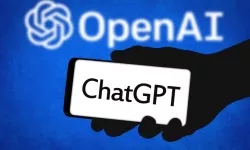
In a recent study released this week, concerns emerged regarding the accuracy and completeness of the free version of ChatGPT, particularly when responding to inquiries about medications. The study, conducted by pharmacists at Long Island University, scrutinized the responses provided by ChatGPT to 39 drug-related questions in May. Astonishingly, only 10 of these responses were deemed satisfactory based on established criteria. The remaining 29 responses either sidestepped the original questions, contained inaccuracies, lacked completeness, or suffered from a combination of these issues, as detailed in the study.
Lead author Sara Grossman, an associate professor of pharmacy practice at LIU, emphasized the need for caution among both patients and healthcare professionals when relying on ChatGPT for drug-related information. Grossman advised verifying any information obtained from the chatbot with credible sources such as a physician or official medication information websites like the National Institutes of Health’s MedlinePlus.
OpenAI, the creator of ChatGPT, stressed that their platform is not a substitute for professional medical advice or traditional healthcare. They highlighted in their usage policy that their models are not specifically fine-tuned to offer medical guidance, particularly for serious conditions. This cautionary stance underscores the importance of seeking professional medical assistance rather than relying solely on AI-generated responses.
While ChatGPT garnered significant attention and popularity since its launch, concerns have arisen regarding its efficacy, accuracy, and potential risks. Multiple studies have highlighted instances of erroneous responses, prompting the Federal Trade Commission to initiate an investigation into the chatbot’s accuracy and consumer protections.
One crucial limitation identified in the study is the free version of ChatGPT's data, which is only updated until September 2021. This time lag might cause the chatbot to lack current and pertinent information in the swiftly evolving medical landscape. Moreover, the study did not assess the paid versions of ChatGPT, which incorporate real-time internet browsing, potentially improving the accuracy of medication-related responses.
Grossman acknowledged the possibility of better performance from a paid version but defended the focus on the free iteration of the chatbot, which aligns more closely with what the general population accesses. She also indicated that the study's findings, presented at the American Society of Health-System Pharmacists’ annual meeting, reflect a single snapshot from earlier this year. There's a chance that the free version of ChatGPT has improved over time, warranting a reevaluation.
The study, which did not require funding, utilized real questions from Long Island University’s College of Pharmacy drug information service. Pharmacists' responses to these questions served as a benchmark for evaluating ChatGPT's accuracy in responding to drug-related queries. However, the chatbot fell short in directly addressing several questions, providing inaccurate or incomplete information, and failing to offer verifiable references for its responses.
For instance, one inquiry about a potential drug interaction between Pfizer’s Covid antiviral pill Paxlovid and the blood-pressure-lowering medication verapamil received an incorrect response from ChatGPT. The chatbot failed to recognize the risk of excessively low blood pressure when these medications are combined, potentially leading to preventable side effects for patients.
Another concerning discrepancy surfaced when ChatGPT was asked about converting doses between different forms of the drug baclofen. The chatbot's response contained an unsupported dose conversion method, presenting the intrathecal dose in milligrams instead of micrograms, potentially leading to a significant miscalculation and subsequent harmful effects for patients.
Grossman stressed the importance of addressing these limitations, as erroneous information from ChatGPT could inadvertently impact patient well-being. While the study’s snapshot focused on the free version of ChatGPT, it underscores the necessity for continuous scrutiny and potential enhancements in AI-powered healthcare assistance to ensure accurate and reliable responses in the future.

CARY, NC - Biologics by McKesson, an independent specialty pharmacy specializing in oncology and rare disease, was selected by SpringWorks Therapeutics as a limited distribution specialty pharmacy for OGSIVEO™ (nirogacestat), which is a gamma secretase inhibitor indicated for adult patients with progressing desmoid tumors who require systemic treatment.
OGSIVEO, which was approved on Nov. 27, 2023, by the U.S. Food and Drug Administration (FDA) based on response data from the DeFi trial, is an oral, selective, small molecule gamma secretase inhibitor for the treatment of adult patients with progressing desmoid tumors. OGSIVEO is the first drug to be approved for this rare type of non-cancerous tumor. Also referred to as aggressive fibromatosis, desmoid tumors are locally invasive, slow growing soft tissue tumors. Although considered benign because of their inability to metastasize, desmoid tumors can cause significant morbidity and occasionally mortality in patients.
“OGSIVEO provides a new therapy option for patients impacted by desmoid tumors, which is a unique, rare, and sometimes unpredictable disease,” said Ela Lourido, vice president and general manager, Specialty Pharmacy Solutions, McKesson. “Biologics is honored to be chosen as a specialty pharmacy provider by SpringWorks to offer this important medication to patients who need it.”
Biologics specialty pharmacy is committed to and recognized for its level of customer service as well as its innovative, high-touch and multidisciplinary patient-centric approach. Each team includes pharmacists with in-depth knowledge of therapies, experienced nurses, and financial counselors who are familiar with various financial assistance programs and organizations that help patients.
For more information about the symptoms, diagnosis, and treatment of desmoid tumors, please click here. For more information about OGSIVEO, including full prescribing information, please click here.
OGSIVEO™ is a trademark of SpringWorks Therapeutics Inc.

BRIDGEWATER, NJ - Amneal Pharmaceuticals, Inc. (NYSE: AMRX) (“Amneal” or the “Company”) and Strides Pharma Science Limited (“Strides”) today announced the addition ofIcosapent ethyl acid soft gel capsules, a product referencing VASCEPA®. The product has been in-licensed from Strides, a global pharmaceutical manufacturer, and will be commercialized by Amneal starting in the fourth quarter of 2023.
Icosapent ethyl acid soft gel capsules 0.5g and 1g is an ethyl ester of eicosapentaenoic acid (EPA) that is indicated as an adjunct to diet to reduce triglyceride levels in adult patients with severe (≥ 500 mg/dL) hypertriglyceridemia.
“We are on-track to launch over 40 new products in 2023,” said Andy Boyer, Executive Vice President, Amneal Generics. “The launch of Icosapent ethyl is another essential medicine that we’ve added to our portfolio.”
“We are thrilled to announce our partnership with Amneal Pharmaceuticals for Icosapent ethyl acid soft gelatin capsules. This partnership is a testament to our commitment to excellence and the pursuit of cutting-edge solutions. By combining our resources, expertise, and shared passion, we are confident that we will achieve remarkable outcomes that benefit not only our organizations but also our valued customer and stakeholders,” said Aditya Kumar, Vice President Business Development, Strides Pharma Science Limited.
Important Safety Information: Adverse effects reported with VASCEPA® include musculoskeletal pain, peripheral edema, constipation, gout, and atrial fibrillation. For full prescribing information, see package insert located here.
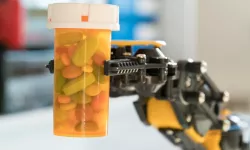
COLUMBUS, OH - Capsa Healthcare, a global leader in advanced healthcare workflow solutions, announces a major expansion into hospital pharmacy automation for high volume/high speed prescription fulfillment operations. Capsa Healthcare, a longtime leader in outpatient pharmacy prescription fulfillment, is leveraging its recent investments in global central filling technology; The company is uniquely poised to offer health systems a reimagined approach to central fill/mail order.
“For high volume pharmacies, we are a new kind of partner,” says Christopher Thomsen, Vice President of Business Development for Capsa’s Pharmacy Automation Group. “We steer clear of the routine, legacy approach. Instead, we draw from global best practices and decades of innovation, and then we apply them to a health system pharmacy’s specific ecosystem. Our approach to central filling is something entirely fresh.”
Capsa Healthcare will exhibit at the American Society of Health-System Pharmacists (ASHP) Midyear Clinical Meeting & Exhibition in Anaheim, CA (#311).
The pharmacy industry is grappling with significant challenges in staffing shortages, operating cost scrutiny, error reduction, centralization, and technology utilization. Capsa’s project planning methodology meets today’s business challenges head-on where it is paramount to achieve more with less. The company’s designs are proven to provide savings in:
- Labor
- Space utilization
- Operating costs
- Average prescription filling time
- Maintenance and downtime
Currently the world’s largest chain pharmacies, health systems, and mail order pharmacies utilize Capsa Healthcare to power their prescription fulfillment. With an ever-expanding network of software-orchestrated robotic filling and order management, Capsa’s solutions can be custom-designed to fit pharmacies in any lifecycle stage: Pharmacies that are updating older systems or removing retail pharmacy robots; Pharmacies that are beginning an expansion project into central fill; Pharmacies automating more of their processes such as unit-of-use medication filling; and Pharmacies automating their outpatient dispensing to meet the health system’s expansion plans.
“Scalability is at the heart of the Capsa approach,” Thomsen says. “There’s never one solution; there is only your solution. We partner with you to design what’s perfect for your growth goals, your space needs, and your budget. It’s all in our reimagined approach to pharmacy design.”
The Capsa Healthcare Pharmacy Automation Group’s rapid expansion in central filling is part of the organization’s overall emphasis on end-to-end solutions for its healthcare partners. Currently serving customers in 70+ countries, Capsa’s leadership has its sights set on expanding its presence while deepening its value to customers.

NORTH CHICAGO, Ill., and WALTHAM, Mass. - AbbVie Inc. (NYSE: ABBV) and ImmunoGen, Inc. (NASDAQ: IMGN) today announced a definitive agreement under which AbbVie will acquire ImmunoGen, and its flagship cancer therapy ELAHERE® (mirvetuximab soravtansine-gynx), a first-in-class antibody-drug conjugate (ADC) approved for platinum-resistant ovarian cancer (PROC). The acquisition accelerates AbbVie's commercial and clinical presence in the solid tumor space. Additionally, ImmunoGen's follow-on pipeline of promising next-generation ADCs further complements AbbVie's ADC platform and existing programs.
Under the terms of the transaction, AbbVie will acquire all outstanding shares of ImmunoGen for $31.26 per share in cash. The transaction values ImmunoGen at a total equity value of approximately $10.1 billion. The boards of directors of both companies have approved the transaction. This transaction is expected to close in the middle of 2024, subject to ImmunoGen shareholder approval, regulatory approvals, and other customary closing conditions.
"The acquisition of ImmunoGen demonstrates our commitment to deliver on our long-term growth strategy and enables AbbVie to further diversify our oncology pipeline across solid tumors and hematologic malignancies," said Richard A. Gonzalez, chairman and chief executive officer, AbbVie. "Together, AbbVie and ImmunoGen have the potential to transform the standard of care for people living with cancer."
ImmunoGen's oncology portfolio has the potential to help drive long-term revenue growth for AbbVie's oncology franchise. Ovarian cancer is the leading cause of death from gynecological cancers in the U.S. ELAHERE is the first targeted medicine to show meaningful survival benefit in PROC. As a fast-growing solid tumor therapy, ELAHERE provides AbbVie with a potential multi-billion-dollar on-market medicine with expansion opportunities in earlier lines of therapy and larger segments of the ovarian cancer market.
"With global commercial infrastructure and deep clinical and regulatory expertise, AbbVie is the right company to accelerate geographic and label expansion, and realize the full potential of ELAHERE as the first and only ADC approved in ovarian cancer," said Mark Enyedy, president and chief executive officer, ImmunoGen. "The addition of ImmunoGen's pipeline, platform, and expertise to AbbVie's oncology portfolio is an exciting opportunity for the combined companies to advance innovation in ADCs. This transaction is the culmination of our 40-year commitment to develop and deliver the next-generation of ADCs and more good days for people living with cancer."
ELAHERE is a first-in-class ADC targeting folate receptor alpha (FRα) with a maytansinoid payload DM4, a potent tubulin inhibitor designed to kill the targeted cancer cells. ELAHERE received U.S. Food and Drug Administration (FDA) accelerated approval in 2022 for the treatment of adult patients with FRα positive, platinum-resistant epithelial ovarian, fallopian tube, or primary peritoneal cancer, who have received one to three prior systemic treatment regimens. The positive Phase 3 results from the MIRASOL confirmatory trial will support a Marketing Authorization Application (MAA) to the European Union and a supplemental Biologic License Application (sBLA) submission to the U.S. FDA in order to gain full approval. Ongoing clinical development programs are underway to expand into earlier lines of therapy and enter other large patient segments of the ovarian market over the next 5-10 years.
ImmunoGen's follow-on pipeline of promising next-generation ADCs expands AbbVie's growing oncology pipeline of potentially transformative programs across multiple different solid tumors and hematologic malignancies. ImmunoGen's Phase 1 asset, IMGN-151, is a next-generation anti-FRα ADC for ovarian cancer with the potential for expansion into other solid tumor indications. Pivekimab sunirine, currently in Phase 2, is an anti-CD123 ADC targeting blastic plasmacytoid dendritic cell neoplasm (BPDCN), a rare blood cancer, which was granted FDA breakthrough therapy designation for the treatment of relapsed/refractory BPDCN.
Transaction Terms
AbbVie will acquire all outstanding ImmunoGen common stock for $31.26 per share in cash. The proposed transaction is subject to customary closing conditions, including receipt of regulatory approvals and approval by ImmunoGen stockholders. The proposed transaction is expected to be accretive to diluted earnings per share (EPS) beginning in 2027.
Conference Call Details
AbbVie will host an investor conference call today at 8:00 a.m. CT to discuss this transaction. The call will be webcast through AbbVie's Investor Relations website at investors.abbvie.com. An archived edition of the call will be available after 9:00 a.m. CT. Presentation materials for the investor conference call are available here.
Advisors
AbbVie's lead financial advisor is J.P. Morgan Securities LLC, which has delivered a fairness opinion for the transaction and Wachtell, Lipton, Rosen & Katz is serving as legal advisor. Morgan Stanley & Co. LLC is also serving as a financial advisor to AbbVie.
ImmunoGen's financial advisors are Goldman Sachs & Co. LLC and Lazard, and Ropes & Gray LLP is serving as legal advisor.
About AbbVie in Oncology
At AbbVie, we are committed to transforming standards of care for multiple blood cancers while advancing a dynamic pipeline of investigational therapies across a range of tumor types. Our dedicated and experienced team joins forces with innovative partners to accelerate the delivery of potentially breakthrough medicines. We are evaluating more than 20 investigational medicines in over 300 clinical trials across some of the world's most widespread and debilitating cancers. As we work to have a remarkable impact on people's lives, we are committed to exploring solutions to help patients obtain access to our cancer medicines. For more information, please visit www.abbvie.com/oncology.
About AbbVie
AbbVie's mission is to discover and deliver innovative medicines and solutions that solve serious health issues today and address the medical challenges of tomorrow. We strive to have a remarkable impact on people's lives across several key therapeutic areas – immunology, oncology, neuroscience, and eye care – and products and services in our Allergan Aesthetics portfolio. For more information about AbbVie, please visit us at www.abbvie.com. Follow @abbvie on LinkedIn, Facebook, Instagram, X (formerly Twitter), and YouTube.
About ImmunoGen
ImmunoGen is developing the next generation of antibody-drug conjugates (ADCs) to improve outcomes for cancer patients. By generating targeted therapies with enhanced anti-tumor activity and favorable tolerability profiles, we aim to disrupt the progression of cancer and offer our patients more good days. We call this our commitment to TARGET A BETTER NOW™.
Learn more about who we are, what we do, and how we do it at www.immunogen.com.
Forward-Looking Statements
Some statements in this news release, including those relating to the proposed acquisition of ImmunoGen by AbbVie, are, or may be considered, forward-looking statements. The words "believe," "expect," "anticipate," "project" and similar expressions and uses of future or conditional verbs, generally identify forward-looking statements. AbbVie and ImmunoGen caution that these forward-looking statements are subject to risks and uncertainties that may cause actual results to differ materially from those expressed or implied in the forward-looking statements. Such risks and uncertainties include, but are not limited to, risks related to the satisfaction or waiver of the conditions to closing the proposed acquisition (including the failure to obtain necessary regulatory approvals and failure to obtain the requisite vote by ImmunoGen stockholders) in the anticipated timeframe or at all, including the possibility that the proposed acquisition does not close, the possibility that competing offers may be made, risks related to the ability to realize the anticipated benefits of the proposed acquisition, including the possibility that the expected benefits from the acquisition will not be realized or will not be realized within the expected time period, the risk that the businesses will not be integrated successfully, disruption from the transaction making it more difficult to maintain business and operational relationships, negative effects of this announcement or the consummation of the proposed acquisition on the market price of AbbVie's common stock and/or operating results, significant transaction costs, unknown liabilities, the risk of litigation and/or regulatory actions related to the proposed acquisition or ImmunoGen's business, challenges to intellectual property, competition from other products, difficulties inherent in the research and development process, adverse litigation or government action, and changes to laws and regulations applicable to our industry. Additional information about the economic, competitive, governmental, technological and other factors that may affect AbbVie's and ImmunoGen's operations is set forth in Item 1A, "Risk Factors," of AbbVie's 2022 Annual Report on Form 10-K, which has been filed with the Securities and Exchange Commission (the "SEC"), as updated by its subsequent Quarterly Reports on Form 10-Q and in Item 1A, "Risk Factors," of ImmunoGen's 2022 Annual Report on Form 10-K, which has been filed with the SEC, as updated by its subsequent Quarterly Reports on Form 10-Q, respectively. Neither AbbVie nor ImmunoGen undertakes any obligation, and each specifically declines, to release publicly any revisions to forward-looking statements as a result of subsequent events or developments, except as required by law.
About ELAHERE (mirvetuximab soravtansine-gynx)
ELAHERE (mirvetuximab soravtansine-gynx) is a first-in-class ADC comprising a folate receptor alpha-binding antibody, cleavable linker, and the maytansinoid payload DM4, a potent tubulin inhibitor designed to kill the targeted cancer cells.
ELAHERE is indicated for the treatment of adult patients with folate receptor-alpha (FRα) positive, platinum-resistant epithelial ovarian, fallopian tube, or primary peritoneal cancer, who have received one to three prior systemic treatment regimens. Select patients for therapy based on an FDA-approved test. This indication is approved under accelerated approval based on tumor response rate and durability of response. Continued approval for this indication may be contingent upon verification and description of clinical benefit in a confirmatory trial.
The prescribing information includes a boxed warning. ELAHERE can cause severe ocular toxicities, including visual impairment, keratopathy, dry eye, photophobia, eye pain, and uveitis. Conduct an ophthalmic exam including visual acuity and slit lamp exam prior to initiation of ELAHERE, every other cycle for the first 8 cycles, and as clinically indicated. Administer prophylactic artificial tears and ophthalmic topical steroids. Withhold ELAHERE for ocular toxicities until improvement and resume at the same or reduced dose. Discontinue ELAHERE for Grade 4 ocular toxicities.
Serious adverse reactions occurred in 31% of patients. The most common (≥2%) serious adverse reactions were intestinal obstruction (8%), ascites (4%), infection (3%), and pleural effusion (3%). Fatal adverse reactions occurred in 2% of patients, including small intestinal obstruction (1%) and pneumonitis (1%).The most common (≥20%) adverse reactions, including laboratory abnormalities, were vision impairment, fatigue, increased aspartate aminotransferase, nausea, increased alanine aminotransferase, keratopathy, abdominal pain, decreased lymphocytes, peripheral neuropathy, diarrhea, decreased albumin, constipation, increased alkaline phosphatase, dry eye, decreased magnesium, decreased leukocytes, decreased neutrophils, and decreased hemoglobin.
Please see full Prescribing Information, including Boxed Warning for ELAHERE.
Additional Information and Where to Find It
In connection with the proposed transaction, ImmunoGen plans to file with the SEC and mail or otherwise provide to its shareholders a proxy statement regarding the proposed transaction. The Company may also file other documents with the SEC regarding the proposed transaction. This communication is not a substitute for the proxy statement or any other document that may be filed by ImmunoGen with the SEC. BEFORE MAKING ANY VOTING DECISION, IMMUNOGEN'S SHAREHOLDERS ARE URGED TO READ THE PROXY STATEMENT IN ITS ENTIRETY WHEN IT BECOMES AVAILABLE AND ANY OTHER DOCUMENTS FILED BY IMMUNOGEN WITH THE SEC IN CONNECTION WITH THE PROPOSED TRANSACTION OR INCORPORATED BY REFERENCE IN THE PROXY STATEMENT BEFORE MAKING ANY VOTING OR INVESTMENT DECISION WITH RESPECT TO THE PROPOSED TRANSACTION BECAUSE THEY WILL CONTAIN IMPORTANT INFORMATION ABOUT THE PROPOSED TRANSACTION AND THE PARTIES TO THE PROPOSED TRANSACTION. Any vote in respect of resolutions to be proposed at ImmunoGen's stockholder meeting to approve the proposed transaction or related matters, or other responses in relation to the proposed transaction should be made only on the basis of the information contained in ImmunoGen's proxy statement. Shareholders may obtain a free copy of the proxy statement and other documents the Company files with the SEC (when they are available) through the website maintained by the SEC at www.sec.gov. The Company makes available free of charge on its investor relations website at investor.immunogen.com copies of materials it files with, or furnishes to, the SEC.
The proposed transaction will be implemented solely pursuant to the merger agreement, which contains the full terms and conditions of the proposed transaction.
No Offer or Solicitation
This communication is for information purposes only and is not intended to and does not constitute, or form part of, an offer, invitation or the solicitation of an offer or invitation to purchase, otherwise acquire, subscribe for, sell or otherwise dispose of any securities, or the solicitation of any vote or approval in any jurisdiction, pursuant to the proposed transaction or otherwise, nor shall there be any sale, issuance or transfer of securities in any jurisdiction in contravention of applicable law.
Participants in the Solicitation
ImmunoGen and its directors, executive officers and certain employees and other persons may be deemed to be "participants" in the solicitation of proxies from shareholders of ImmunoGen in favor of the proposed transaction. Information about ImmunoGen's directors and executive officers is set forth in ImmunoGen's proxy statement on Schedule 14A for its 2023 Annual Meeting of Stockholders, which was filed with the SEC on April 26, 2023 and in ImmunoGen's Current Report on Form 8-K filed with the SEC on September 18, 2023. Additional information concerning the interests of ImmunoGen's participants in the solicitation, which may, in some cases, be different than those of ImmunoGen's stockholders generally, will be set forth in ImmunoGen's proxy statement relating to the proposed transaction when it becomes available. These documents are available free of charge at the SEC's website at www.sec.gov and at investor.immunogen.com.